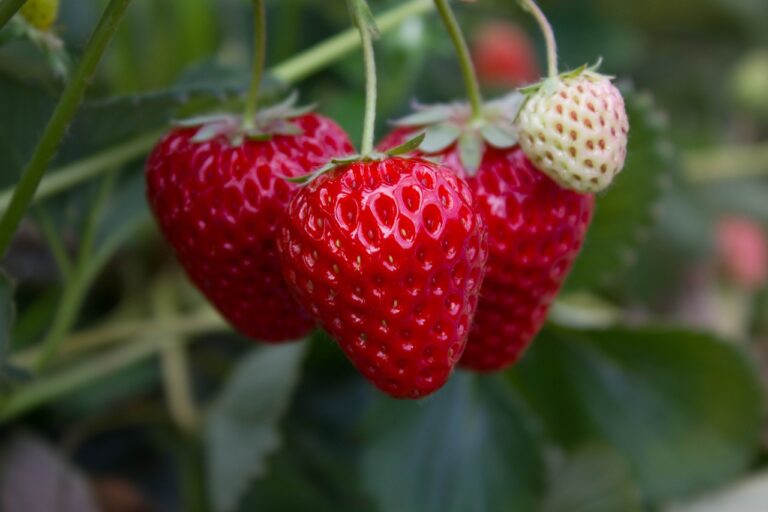The Future of Beverage Industry Partnerships
tiger exange, golden77 login, sky 99 exch app:The beverage industry is constantly evolving, with new trends, technologies, and consumer preferences shaping its future. One of the key drivers of this evolution is partnerships between companies within the industry. Whether it’s a collaboration between a soda giant and a local craft brewery or a strategic alliance between a coffee chain and a dairy producer, these partnerships are helping to drive innovation, expand market reach, and create unique experiences for consumers.
As we look ahead to the future of the beverage industry, it’s clear that partnerships will play an increasingly important role. In this article, we’ll explore the trends shaping the future of beverage industry partnerships and discuss how companies can leverage these partnerships to stay ahead of the curve.
The Rise of Cross-Industry Collaborations
One of the most notable trends in the beverage industry in recent years has been the rise of cross-industry collaborations. Companies that once operated in distinct sectors are now teaming up to create innovative products and experiences that cater to a wider range of consumer preferences.
For example, we’ve seen partnerships between beverage companies and technology firms to develop smart appliances that make it easier for consumers to create their favorite drinks at home. We’ve also seen collaborations between beverage companies and fashion brands to create limited-edition products that appeal to a younger, trend-conscious audience.
These cross-industry collaborations are helping beverage companies to tap into new markets, reach new customers, and differentiate themselves from the competition. By partnering with companies outside of their traditional sphere, beverage companies can bring fresh perspectives and ideas to the table, leading to the creation of exciting new products and experiences.
The Power of Strategic Alliances
In addition to cross-industry collaborations, strategic alliances between players within the beverage industry are also becoming increasingly common. These alliances allow companies to pool their resources, expertise, and market reach to achieve common goals and drive growth.
For example, we’ve seen beverage companies join forces with distribution partners to expand their reach into new markets. We’ve also seen alliances between beverage companies and ingredient suppliers to develop new formulations and recipes that cater to evolving consumer tastes.
Strategic alliances can also help beverage companies to stay competitive in a rapidly changing industry. By working together, companies can leverage each other’s strengths and capabilities to innovate more quickly, respond to market trends more effectively, and stay ahead of the curve.
The Role of Technology and Innovation
Technology and innovation are playing an increasingly important role in shaping the future of beverage industry partnerships. From artificial intelligence and machine learning to blockchain and virtual reality, new technologies are enabling companies to collaborate in ways that were not possible before.
For example, we’ve seen beverage companies use blockchain technology to track and trace ingredients throughout the supply chain, ensuring transparency and accountability. We’ve also seen companies use artificial intelligence to analyze consumer data and develop personalized marketing campaigns that resonate with their target audience.
As technology continues to advance, we can expect to see even more innovative partnerships emerge within the beverage industry. Companies that embrace new technologies and invest in innovation will be better positioned to capitalize on the opportunities that these partnerships present and drive growth in an increasingly competitive market.
The Importance of Sustainability and Social Responsibility
Another key trend shaping the future of beverage industry partnerships is the growing focus on sustainability and social responsibility. Consumers are becoming more conscious of the environmental and social impact of the products they consume, and companies are responding by partnering with like-minded organizations to create products that are not only delicious but also sustainable and ethical.
For example, we’ve seen beverage companies team up with non-profit organizations to support environmental conservation projects and promote sustainable farming practices. We’ve also seen companies partner with suppliers that prioritize fair trade and ethical sourcing to ensure that their products are produced in a responsible manner.
By aligning themselves with partners that share their values and commitment to sustainability and social responsibility, beverage companies can build trust with consumers, differentiate themselves from competitors, and create long-term value for their brands.
Looking Ahead: The Future of Beverage Industry Partnerships
As we look ahead to the future of the beverage industry, one thing is clear: partnerships will continue to play a crucial role in driving innovation, growth, and sustainability. Companies that embrace cross-industry collaborations, strategic alliances, technology, and innovation will be better positioned to navigate the challenges and opportunities that lie ahead.
By partnering with like-minded organizations, investing in new technologies, and prioritizing sustainability and social responsibility, beverage companies can create products and experiences that resonate with consumers, create value for stakeholders, and shape the future of the industry.
FAQs
Q: What are some examples of successful beverage industry partnerships?
A: Some examples of successful beverage industry partnerships include the collaboration between Starbucks and Nestle to create a line of premium coffee products for home consumption, the partnership between Coca-Cola and Netflix to promote the streaming service through limited-edition soda cans, and the alliance between Budweiser and a local craft brewery to create a new line of small-batch beers.
Q: How can beverage companies identify potential partnership opportunities?
A: Beverage companies can identify potential partnership opportunities by conducting market research, attending industry events and trade shows, networking with other companies in the industry, and leveraging the expertise of their existing partners and suppliers. By staying informed about market trends and consumer preferences, companies can identify partners that can help them achieve their goals and drive growth.
Q: What are some of the key benefits of beverage industry partnerships?
A: Some of the key benefits of beverage industry partnerships include expanded market reach, increased brand awareness, access to new technologies and capabilities, faster innovation, cost savings, and the ability to differentiate products and experiences in a competitive market. By partnering with the right companies and organizations, beverage companies can unlock new opportunities and create value for their brands.
Q: How can beverage companies ensure the success of their partnerships?
A: Beverage companies can ensure the success of their partnerships by clearly defining goals and expectations, establishing open and transparent communication channels, setting up regular checkpoints to monitor progress, and mutually agreeing on key performance indicators and metrics. By fostering a collaborative and mutually beneficial relationship with their partners, companies can maximize the value of their partnerships and achieve their objectives effectively.







